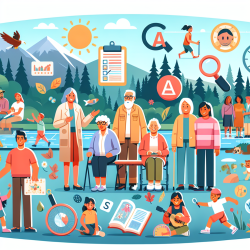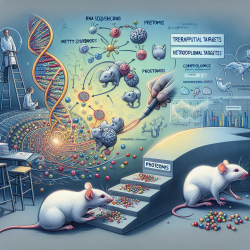Juvenile Idiopathic Arthritis (JIA) affects over 1,000 children and adolescents in Ireland, posing significant challenges to their health-related quality of life. With specialist care centralized in Dublin, many families face barriers to accessing consistent rheumatology services. Recent research highlights the potential of adapting a Canadian web-based program, "Teens Taking Charge: Managing Arthritis Online" (TTC), to meet the self-management needs of Irish adolescents with JIA.
The Study: Understanding Needs and Evaluating Solutions
The study conducted interviews and focus groups with 16 Irish adolescents with JIA, their parents, and 22 healthcare professionals. The aim was to explore the self-management needs of these adolescents and assess the acceptability of the TTC program for Irish users. Five key themes emerged:
- Independent Self-Management: Adolescents expressed a desire to manage their condition independently but often lacked the necessary information.
- Acquiring Skills and Knowledge: Both adolescents and parents emphasized the need for comprehensive resources to understand JIA better.
- Unique Challenges in Ireland: Geographic centralization of care and long wait times were significant barriers.
- Web-Based Interventions: Participants viewed online resources like TTC as valuable tools for gaining knowledge and support.
- Social Support: The importance of peer support was highlighted, with suggestions to integrate it into the TTC program.
The Role of Online Interventions
The TTC program offers a structured approach with modules covering essential topics such as skills training, communication, advocacy, and treatment information. Participants appreciated its potential to provide accurate information and support independent self-management. However, they suggested adaptations to make it culturally relevant for Irish users, such as including local sports references and medication names.
The Importance of Social Support
A significant finding was the value placed on social support from peers experiencing similar challenges. Adolescents expressed a preference for informal peer interactions over formal psychological services due to accessibility issues and cultural stigma. Integrating a peer-support scheme within the TTC program could offer additional benefits by fostering understanding and shared experiences among adolescents with JIA.
The Path Forward: Implementing Research Outcomes
The study underscores the need for accessible, accurate information tailored to the Irish context. Practitioners can enhance their skills by exploring how online interventions like TTC can be adapted to local needs. Encouraging further research into culturally appropriate self-management strategies will ensure better support for adolescents with JIA.
If you're interested in delving deeper into this research, you can access the original paper here: Self-management needs of Irish adolescents with Juvenile Idiopathic Arthritis (JIA): how can a Canadian web-based programme meet these needs?










